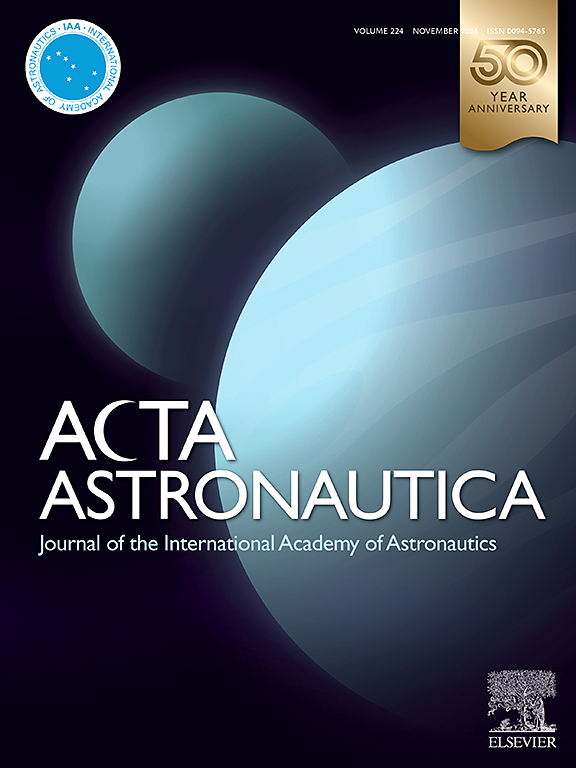Establishing a governance for cyber operations in outer space: Exploring challenges faced by space and cyber commands
IF 3.4
2区 物理与天体物理
Q1 ENGINEERING, AEROSPACE
引用次数: 0
Abstract
During the past decade, major spacefaring nations have updated their space governance, establishing space forces and space commands now designed to address the evolving threat landscape in outer space. In parallel, the threat landscape has also evolved in cyberspace with a skyrocketing number of attacks coming from an increasingly diversified pool of actors, requiring governance changes authorizing the establishment of cyber forces and cyber commands. Both space and cyberspace are now increasingly recognized as warfighting domains and armed forces are conducting, or training to conduct, cyber-enabled space operations, which remain a new set of operations for which governance, operational modes, processes, and doctrines have to be adopted. The paper will aim at providing an overview of the governance of cyber-enabled operations in space and cyber commands and the challenges that these new missions face from the organizational perspective. First, the paper will provide case studies on the United States, the United Kingdom, Germany, and France, looking particularly into the governance, mandates and responsibilities regarding cyber operations. Then, the paper will analyze challenges and shortcomings associated with the establishment of responsibilities for cyber operations in Space and Cyber Commands. Finally, the paper will provide an overview of evolving governance issues and questions that will influence the roles such space cyber operations will assume in dynamically changing battlefield settings.
建立外层空间网络作战治理:探讨空间和网络指挥面临的挑战
在过去十年中,主要航天国家更新了其空间治理,建立了空间部队和空间司令部,现在旨在应对外层空间不断变化的威胁形势。与此同时,网络空间的威胁形势也在发生变化,来自越来越多样化的行动者的攻击数量急剧增加,需要对治理进行变革,授权建立网络部队和网络司令部。空间和网络空间日益被视为作战领域,武装力量正在开展或训练开展基于网络的空间作战,这仍然是一套新的行动,需要采用治理、作战模式、流程和理论。本文旨在概述空间和网络指挥中网络作战的治理,以及这些新任务从组织角度面临的挑战。首先,本文将提供有关美国、英国、德国和法国的案例研究,特别关注有关网络操作的治理、授权和责任。然后,本文将分析与空间和网络司令部建立网络作战责任相关的挑战和缺点。最后,本文将概述不断发展的治理问题和问题,这些问题和问题将影响空间网络作战在动态变化的战场环境中所扮演的角色。
本文章由计算机程序翻译,如有差异,请以英文原文为准。
求助全文
约1分钟内获得全文
求助全文
来源期刊

Acta Astronautica
工程技术-工程:宇航
CiteScore
7.20
自引率
22.90%
发文量
599
审稿时长
53 days
期刊介绍:
Acta Astronautica is sponsored by the International Academy of Astronautics. Content is based on original contributions in all fields of basic, engineering, life and social space sciences and of space technology related to:
The peaceful scientific exploration of space,
Its exploitation for human welfare and progress,
Conception, design, development and operation of space-borne and Earth-based systems,
In addition to regular issues, the journal publishes selected proceedings of the annual International Astronautical Congress (IAC), transactions of the IAA and special issues on topics of current interest, such as microgravity, space station technology, geostationary orbits, and space economics. Other subject areas include satellite technology, space transportation and communications, space energy, power and propulsion, astrodynamics, extraterrestrial intelligence and Earth observations.
 求助内容:
求助内容: 应助结果提醒方式:
应助结果提醒方式:


